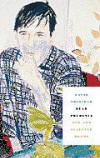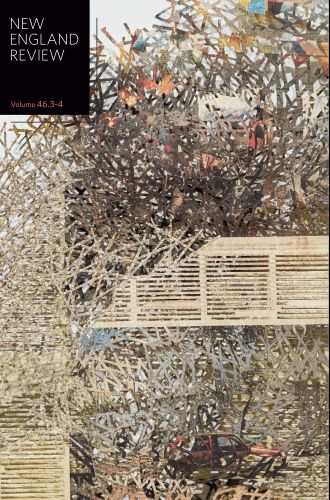Dear Prudence: New & Selected Poems, the latest work by poet and Columbia College Chicago professor David Trinidad, collects new poems and selections from over a thirty-year publishing history, including most recently By Myself (with D.A. Powell, 2009), Tiny Moon Notebook (2007), and The Late Show (2007). In 2000, he was a finalist for the Lenore Marshall Poetry Prize for his collection Plasticville. The scope of Dear Prudence allows readers unfamiliar with Trinidad’s work a thorough introduction; those familiar with his work will find an indispensable exploration of the poet’s task of collecting, arranging and remembering.
Dear Prudence: New & Selected Poems, the latest work by poet and Columbia College Chicago professor David Trinidad, collects new poems and selections from over a thirty-year publishing history, including most recently By Myself (with D.A. Powell, 2009), Tiny Moon Notebook (2007), and The Late Show (2007). In 2000, he was a finalist for the Lenore Marshall Poetry Prize for his collection Plasticville. The scope of Dear Prudence allows readers unfamiliar with Trinidad’s work a thorough introduction; those familiar with his work will find an indispensable exploration of the poet’s task of collecting, arranging and remembering.
The most striking thing about the new poems, collected under the title “Black Telephone,” is how they are completely connected to the old poems, to the idea of creating narrative by remembering and re-imagining the past. Trinidad leads off with “Sheena is a Punk Rocker,” a poem equally at home with references to Anaïs Nin and the Ramones. The piling up of these references serves as the primary repository of images. Patti Smith stops being a person and becomes a mood, a time period, a way of living. The relationship in the poem “Without a Title” can only be described as vertigo while at the Top of the World.
Some allusions made me wish that I was reading with Wikipedia open, or that I had spent my junior high smut phase reading Valley of the Dolls instead of Danielle Steele and Christopher Pike. I also found myself wondering if these stories were contemporary, if I swapped out band names for ones I hadn’t been taught to respect, would I be as interested, as desperate to dig into the imagined lives of others? In Trinidad’s poems, there is something grander than a provocation to voyeurism: space, distance, and impossible longing make it possible to bury oneself in this work.
Though memory is what makes the poems tick, the collection seems equally dependent on its gaps and creative constructions. In “My Man Godfrey,” the narrator asks “where are my bright particulars?” as though those shiny bits of glue, those flashes of photographic realness which serve to hold the constructed narrative together have started to fade. “Without a Title” asks: “(did it creak? / I remember / it creaking).” In the last of the new poems, “The Past (after Neruda),” veracity seems to be less relevant than how details are put to use. Here, life is “something I create” because “that is happiness…to be fully engaged.” To experience the moment of memory is more important than the particular memory. Whether it’s “my mother bravely facing her fear / of the subway” (“Without a Title”), lost loves, or memories of past violence, it’s “Better to look pinkly through a glass at / the tarnished past” (“Poem Under the Influence”).
“Dear Prudence,” the second, lengthier section, collects poems from 1975 to 2007 that see through this pink but not rosy lens. Although the book as a whole covers a poet’s evolution, even in his early work, Trinidad’s voice is clearly heard through his mastery of lists and formal poems. “Pinks” imagines the particular shades of Emily Dickinson, Sylvia Plath, and Anne Sexton while “Gloss of the Past” lists the colors of lips gone by. From the extended list of “Mothers” to “From Ted Hughes’ List of Suggested Writing Exercises for Sylvia Plath,” each list item is itself a poem, a complete story or image on which to pause. His obsessions range from the literary to toys. “Chatty Cathy Villanelle” is among the most terrifying poems I’ve ever read, and Barbie and friends rear their blonde and nearly blonde heads in more poems than not. Nearly as terrifying are the rhymed couplets of “Fortunes” and “Plasticville,” and the new poems contain two series of haiku on Peyton Place.
Trinidad’s poems are peopled with women more faded than any “bright particulars,” who don’t understand why they can’t be more than they are; their obsessions become ours with the repeated lines of “Jacqueline Susann and Her Husband Irving Mansfield, Los Angeles, Cal. 1969,” “Hack, Hack, Sweet Has Been,” and “Movin’ with Nancy.” By the time I got to “Written with a Pencil Found in Lorine Niedecker’s Front Yard” on page 406, I believed that not only did the pencil rightfully belong to him but that generations of women worn out from being beautiful stood behind Trinidad as he wrote, ready to give him another pencil if this one broke.





